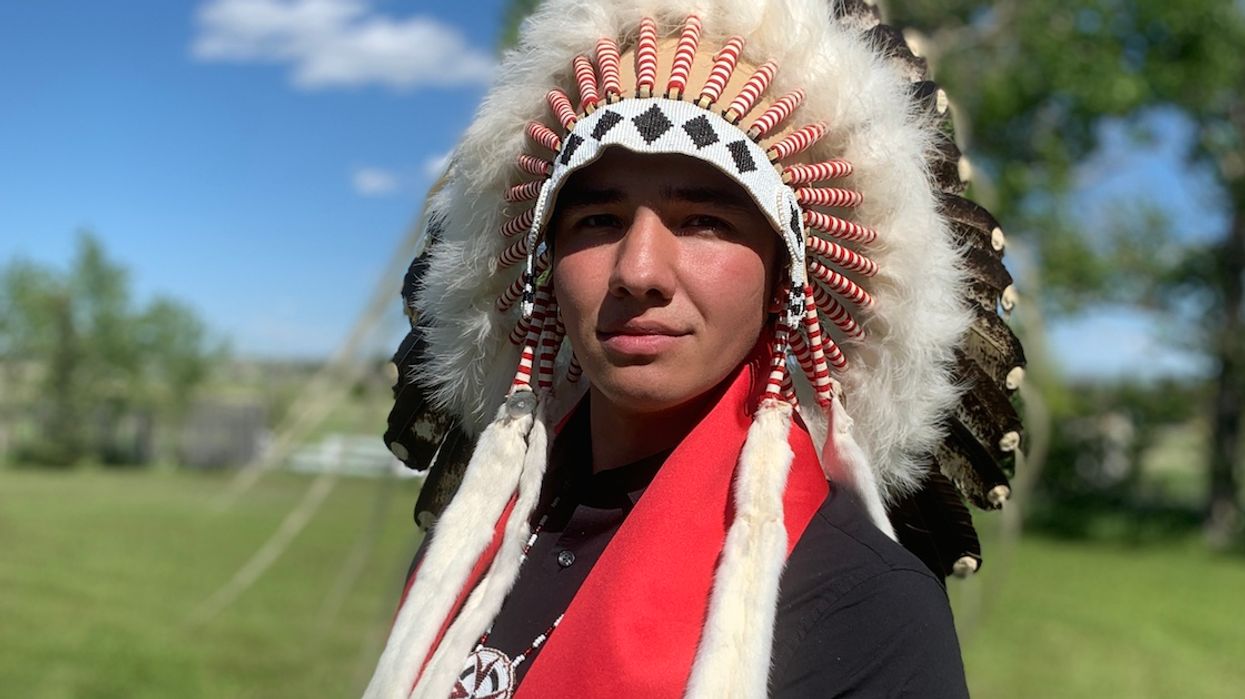A McGill Valedictorian Shared How He Believes Young People Can Make Their Voices Heard
Tomas Jirousek has been named one of McGill Faculty of Arts valedictorians. His accomplishments speak for themselves and have made him one of the most recognizable students in the city. A member of the Kainai First Nation, Tomas led the successful campaign to change the name of the school's varsity men's sports teams, previously called the "Redmen," a derogatory slur targeting Indigenous people.
Tomas, himself, was a member of the school's rowing team and knew that the name could no longer represent the school.
Although the initiative faced strong backlash, he persevered, and the school has announced that a name change will begin in the 2020-21 school year.
Heading to the Faculty of Law at the University of Toronto in September, Tomas' impact at McGill and in the city of Montreal will remain even now that he has graduated.
We reached out to Tomas to chat about what it means to stand up for something and the influence that young people can have in making lasting change.
This interview has been edited and condensed for clarity.
How do you feel the conversations on topics on discrimination and systemic racism have changed since you first started speaking out?
I think we are seeing more conversations around the way we think about names and statues as glorifying or misrepresenting the past.
When I was leading the campaign to change the Redmen name, I would often be confronted with the argument that I was "misrepresenting" the past based on opinions held by non-Indigenous folks. This issue is, of course, is that history cannot be dictated and presented from one sole perspective.
And it's the same thing when looking at conversations around statues.
But, in all honesty, I think we're finally allowing for the voices of Indigenous, Black, and communities of colour to express how we've experienced history.
As an Indigenous person, I don't look at the statue of James McGill and see a hero. Instead, I see a man who built McGill University using Black and Indigenous slaves.
So, by keeping up these statues and names, we aren't actually capturing or expressing true "history," but instead, we're promoting a history based on one narrative.
I think if anything, movements to change names, like the Redmen, more accurately and appropriately reflect the history of institutions.
What role do young people have to play at such a pivotal moment for social justice?
Young people are the key! Truly, and this has been a message of my valedictorian address.
We need young people who are willing and able to critically and respectfully engage with the institutions around us.
We have inherited institutions with large systemic issues, and now, more than ever, we see those issues clearly.
And we won't change those institutions by just sitting there idly, instead we need to be willing to actively use our energy and resources in challenging those institutions.
What you think students and young people in both Montreal and across Canada can do to make their voices heard today?
I think students and young people can really have an impact by just starting with the little things.
Systemic racism is a massive issue, and it might very well seem intimidating to try to challenge an entire institution on an issue like names or statues, but, and this is really key, you don't need to shoulder and confront the entire issue on your own.
Instead, think about how your resources might better support anti-racist work already being done.
There are a ton of community organizations and anti-racist funds that either take donations or accept volunteers.
Look for educational resources and share them with your friends and family. Get involved and see what actions BIPOC leaders are specifically calling for in their community.
If you 'tune into' the conversation, it becomes easier to see how young people can provide allyship to work being done.

